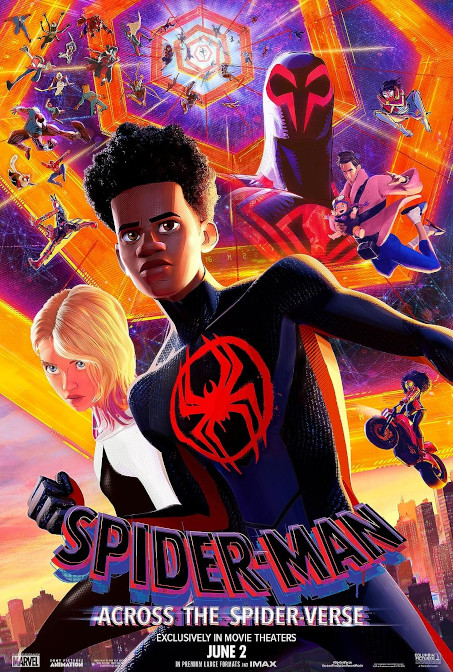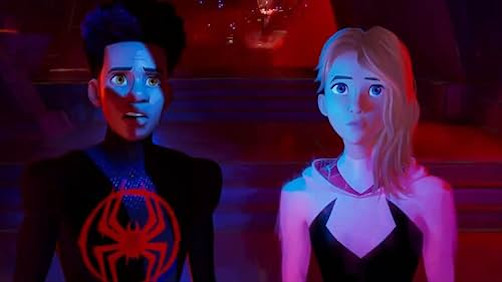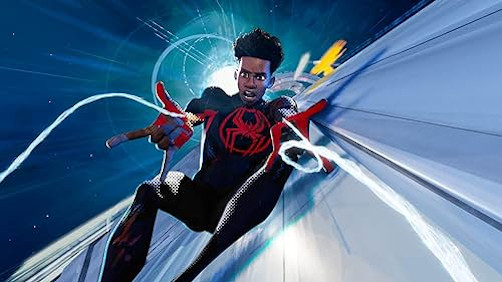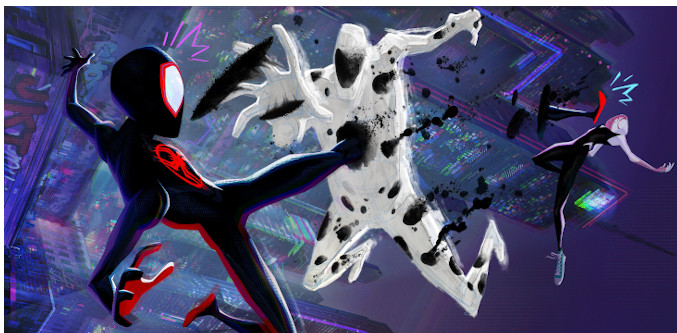Great Power, Great Diversity Across the Spider-Verse

2023’s Spider-Man: Across the Spider-Verse is the successful follow-up to Spider-Man: Into the Spider-Verse. It’s a film that has been praised by audiences and critics alike with its undeniably flashy and original artistic style, as well as its captivating storytelling.
However, one of the most compelling aspects of the film is its surprisingly rich subtext. Aside from the more obvious themes of inclusivity and diversity, something which expands on the first film's notion that “anyone can be behind the mask,” the film is in many ways about pop culture, media, and postmodernism.
The first big set piece of the film takes place in the Guggenheim Museum, and the interior headquarters of the Spider-society invokes some of M.C. Escher’s works, in addition to the fact that the entire film is laden with cameos and references.
When we examine one of the film's strongest aspects, its varied and diverse cast, through a critical lens of pop culture, the film stands out as not just an allegory for individuality in our own lives, but also as advocating for diversity and individuality in storytelling.
This is best examined through the way Peter B. Parker is presented. I do see the irony in talking about diversity in a film through the straight, white, male character who has had more iterations and films than maybe any other superhero franchise.

However, that is exactly the reason Peter B. Parker stands out. In both films, Peter is portrayed as past his prime. He has a midlife crisis energy to his presentation with his disheveled outfits and five o’clock shadow.
He takes a back seat to Miles and the other characters in this film because, well, this isn’t really about him. Even when he is more involved in the action — like in Into the Spider-verse with his mentorship role for Miles — he has a more “been there, done that” attitude. Not that Peter is bored, but he knows the conventions of a Spider-Man story.
As such, Peter represents a cultural idea of Spider-Man, ignoring the comic book canon, which is far too convoluted for most viewers. Peter Parker’s Spider-Man has been altered countless times.
Which version of Peter a viewer can attach to will largely depend on which films they have seen and enjoyed. This is a point the film makes with cameos and references to various versions of the character, be it the “Spectacular Spider-Man” animated show, “Marvel’s Spider-Man” the 2018 videogame, or Tom Holland’s, Andrew Garfield’s, and Tobey Maguire’s portrayals of the character.
All of these stories follow the same general threads, but all take their own liberties with specifics. With all of these various iterations, can we argue that Peter is a tired character?
Most fans know Peter’s story, and the film is making a point that there are so many more characters to explore.

Peter B. Parker is Peter as would seem the natural conclusion to his arc. He’s settled down, married to Mary Jane, and is raising a child. He may still be Spider-Man, but the real challenges are behind him. Given how much tragedy Peter often faces as a character, this peace is what he deserves.
The film jokes about Peter being out of touch when Gwen asks him to defend her to Miguel, the leader of the Spider-society and the film's primary antagonist. Peter begins, “As a son of a mother and a father of a daughter…” a gag that alludes to the height of the #MeToo movement, when many men would qualify their statements in defense of women with similar verbiage.
Peter B. is essentially a character who is passing on the torch to the new Spider-People who have yet to tell their stories. We all know Peter’s story; it's time to let new blood take the spotlight.
Giving Peter B. the sort of happy ending he deserves enables audiences to be more receptive to these films and the shift away from Peter Parker. The creators have said that one inspiration for the films was as a response to the hate Miles Morales received as a character when he originally appeared in the comics.
This sort of hate mirrors some of the recent controversies regarding accusations that films are intentionally too “woke” – for example, viewers have criticized films such as The Little Mermaid remake for casting a black actress to play Ariel.
However, this sort of criticism has not been levied at Across the Spider-Verse despite taking liberties with its portrayals of diversity.

For example, Miguel O’Hara, Spider-Man 2099, and Jessica Drew’s Spider-Woman, who are both characters in the comics, are presented differently in the film.
Miguel is Hispanic and Irish in the comics; however, his complexion is far more pale, arguably white, in the original 1992 run of Spider-Man 2099. He sports bright red hair. Across the Spider-Verse opts to emphasize his Hispanic heritage with a darker skin tone and brown hair.
The original comic line takes place in New York, 100 years in the future, whereas the film refers to Miguel living in Nueva York.
Jessica Drew, however, is a more drastic alteration of the source, as Across the Spider-Verse depicts the originally white character as black.
I argue that these alterations are made to emphasize the film’s theme of diversity and the idea that Spider-Man belongs to everyone. It does show an interesting exception to criticisms of “token” diversity of which films like “The Little Mermaid” are subject, considering how Across the Spider-Verse has largely avoided those criticisms.
I think Peter B.’s muted presence in the film is one reason fans are so receptive to these new Spider-People. The film pays homage to the history of the character but also directs us to pay attention to the new cast.

It comes across as a film that is specifically tailored for everyone. It emphasizes Spider-Man as a symbol of hope. Spider-Man represents the idea that you must always do what you believe is right, no matter how hard it may be.
Spider-Man is a symbol that has surpassed the character who spawned it. After all, in this film, Miles embodies the spirit of Spider-Man more than any of the other Spider-People. I think that is something everyone, even fans who grew up loving Peter Parker, can appreciate.
Author Bio:
Garrett Hartman is a contributing writer at Highbrow Magazine.
For Highbrow Magazine































































































































































































































































































































